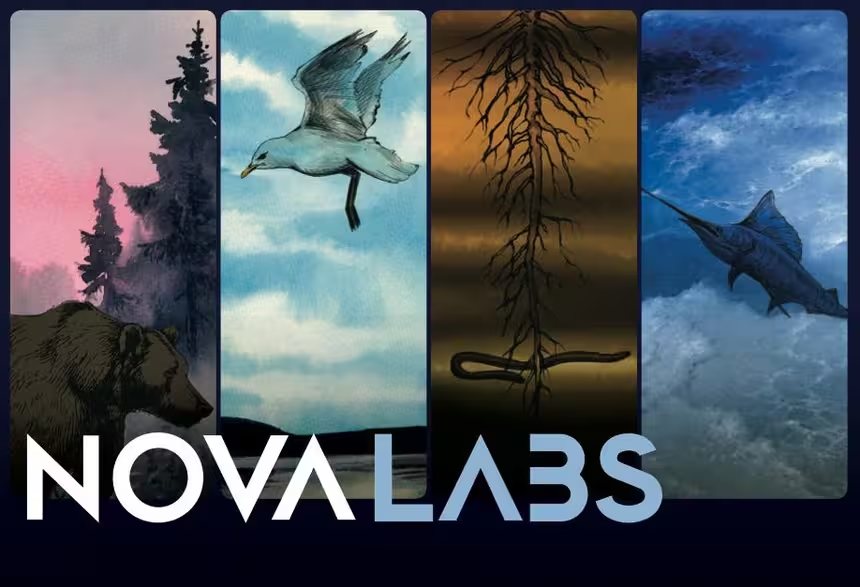
Could This Icy Moon’s Ocean Support Life?
Clip: Season 51 Episode 11 | 1m 21sVideo has Closed Captions
Hydrothermal vents in Enceladus’ ocean may hold the promise of life.
Enceladus has jets rich in phosphates and likely hydrothermal vents in its ocean. With the key ingredients for life on its surface, the moon may serve as an incubator for life.
Problems playing video? | Closed Captioning Feedback
Problems playing video? | Closed Captioning Feedback
National Corporate funding for NOVA is provided by Carlisle Companies and Viking Cruises. Major funding for NOVA is provided by the NOVA Science Trust, the Corporation for Public Broadcasting, and PBS viewers.

Could This Icy Moon’s Ocean Support Life?
Clip: Season 51 Episode 11 | 1m 21sVideo has Closed Captions
Enceladus has jets rich in phosphates and likely hydrothermal vents in its ocean. With the key ingredients for life on its surface, the moon may serve as an incubator for life.
Problems playing video? | Closed Captioning Feedback
How to Watch NOVA
NOVA is available to stream on pbs.org and the free PBS App, available on iPhone, Apple TV, Android TV, Android smartphones, Amazon Fire TV, Amazon Fire Tablet, Roku, Samsung Smart TV, and Vizio.
Buy Now

NOVA Labs
NOVA Labs is a free digital platform that engages teens and lifelong learners in games and interactives that foster authentic scientific exploration. Participants take part in real-world investigations by visualizing, analyzing, and playing with the same data that scientists use.Providing Support for PBS.org
Learn Moreabout PBS online sponsorship- I think the chances are pretty high that there are hydrothermal vents at the bottom of Enceladus' ocean.
Just like Earth's ocean, Enceladus' ocean sits right on top of its rocky mantle, - [Narrator] And with probable hydrothermal vents, an exciting possibility for life.
- We think that life could have originated on Earth in hydrothermal vents, and these hydrothermal vents have those ingredients that are essential for life.
- [Narrator] And it isn't just the possibility of heat that makes Enceladus a compelling incubator for life.
- There are three key ingredients to a habitable environment, liquid water, chemical nutrients, and an energy source to use.
And now we know that Enceladus has all three within its ocean.
- A 2023 study showed that Enceladus' jets have phosphates in them anywhere from a hundred to a thousand times the amount of phosphates that we find in Earth's oceans.
Phosphates, we know, are a key component of DNA, which is the building block of life.
- Does that mean that we found life?
Well, we don't know.
- Just because we found phosphate, it's a potential ingredient, but it's not a slam dunk.
And so we need to go back and really explore in more detail to see what is the origin of this phosphate.
(dramatic music)
Enceladus: A Frozen Moon With Explosive Eruptions
Video has Closed Captions
Clip: S51 Ep11 | 1m 56s | Enceladus’ small size and icy surface is no limitation to its extreme volcanism. (1m 56s)
Solar System: Volcano Worlds Preview
Video has Closed Captions
Preview: S51 Ep11 | 30s | Discover the powerful volcanic eruptions that have shaped worlds across our solar system. (30s)
This Tiny Moon Is a Volcanic Powerhouse
Video has Closed Captions
Clip: S51 Ep11 | 2m 45s | Io’s intense volcanic activity defies all expectations. (2m 45s)
Providing Support for PBS.org
Learn Moreabout PBS online sponsorship
- Science and Nature

Capturing the splendor of the natural world, from the African plains to the Antarctic ice.













Support for PBS provided by:
National Corporate funding for NOVA is provided by Carlisle Companies and Viking Cruises. Major funding for NOVA is provided by the NOVA Science Trust, the Corporation for Public Broadcasting, and PBS viewers.





